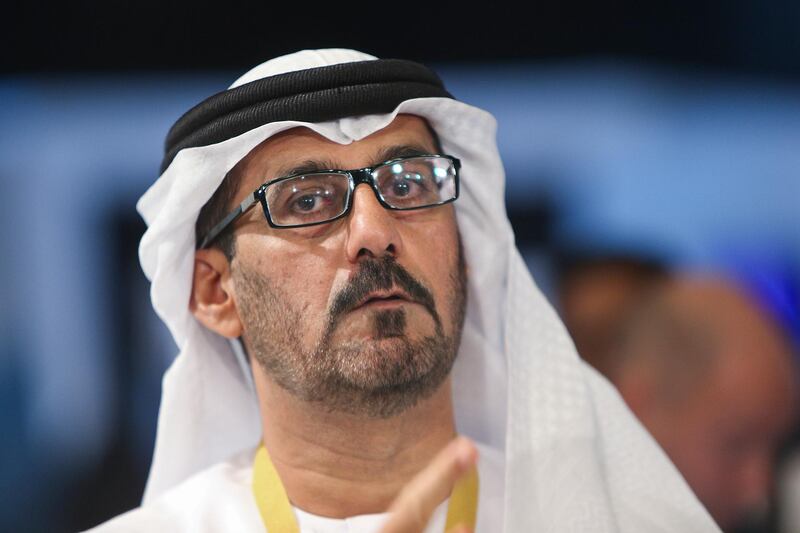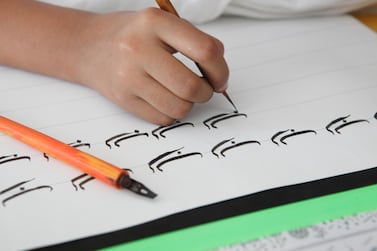The government has urged the public to give feedback on how to bolster the teaching of Arabic across the Emirates.
Hussain Al Hammadi, the Minister of Education, said urged pupils and parents to have their say about how teaching could be more dynamic.
Last year, a new study was launched to assess the Arabic language and gauge how effectively it was being taught.
“This objective is not limited to a specific school, it involves all public and private schools,” said Mr Al Hammadi.
“We look forward to the contribution of the community in this development, and we would like to know the public’s opinion on education levels in all schools without exceptions.”
Arabic teaching in UAE schools has in the past been criticised for failing to properly engage students.
Very few expats growing up in the Emirates finish school speaking more than a few words, and native Arabic speakers often use 'Arabizi' - Arabic conversations written out in the Latin alphabet.
Education experts have claimed old-fashioned teaching methods have made the language boring, meaning less children enjoyed taking the subject.
Teachers have also said they lack the proper resources in the classroom to broaden the subject's appeal. Some schools have also struggled to find staff capable of injecting new interest in the language.
In January, however, private schools in the Emirates announced they would be rolling out a new Arabic digital teaching programme to help address the issue.
The scheme, which will launch in September, will use mobile apps as part of efforts to revive interest in learning the language.
On Wednesday, Noura Al Kaabi, the Minister of Culture and Knowledge Development, said the government was making progress.
“The UAE will work hard to promote the status of the Arabic Language among other living languages of the world,” she said.
“The report marks an important start for linguistic planning of the mother language in the UAE and the Arab World at large, and contributes to the 2021 UAE Vision and position the country as a centre of excellence for the Arabic language.”
Students and their parents all agreed that a firm grasp of the Arabic language, as might be expected, was essential.
Many claimed learning the subject was hard, pointing out that the curriculum could be improved to make it easier for students to tackle.
“Arabic language is one of the most detailed languages in the world,” said Ahmed Bader, 55, an Arab parent who has lived in the UAE for 20 years.
“It needs a great deal of effort and a long time to fully understand. It’s very difficult to learn.
“Yes, schools could change the Arabic curriculum to make it easier for students to approach. For example, teach the rules of Arabic and how to speak it through stories.”
“It’s very important to learn Arabic in the UAE,” said Eman Mahmoud, 21, a student in the Emirates.
“I’ve known Arabic since I was a kid because it’s my native language. [Learning it] is a form of respect for the culture you’re living amongst.
“I found it very hard in school because it’s taught very differently from the way I learned it at home.
“There was more grammar involved and it was much harder to grasp orally. The teaching of the Arabic language [in the UAE] can be improved.
“Schools focus a lot more on grammar than they do on literature. There’s so much more Arabic literature that we could have learned.”







